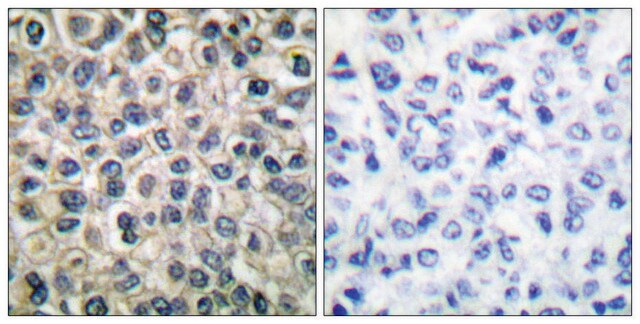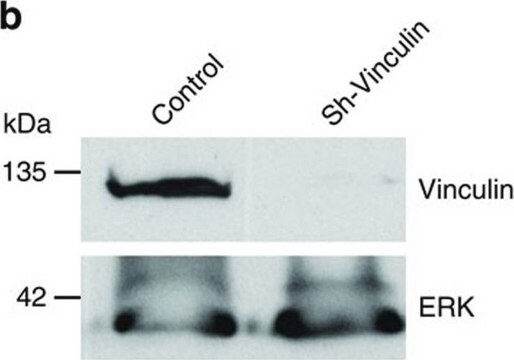P8087
Monoclonal Anti-Plakoglobin (Catenin γ) antibody produced in mouse
clone 15F11, ascites fluid, buffered aqueous solution
About This Item
Productos recomendados
origen biológico
mouse
Nivel de calidad
conjugado
unconjugated
forma del anticuerpo
ascites fluid
tipo de anticuerpo
primary antibodies
clon
15F11, monoclonal
formulario
buffered aqueous solution
mol peso
antigen 85 kDa
contiene
15 mM sodium azide
reactividad de especies
bovine, canine, human
técnicas
immunocytochemistry: suitable using cultured cells
immunohistochemistry (frozen sections): suitable
immunoprecipitation (IP): suitable
indirect immunofluorescence: 1:1,000 using cultured MDBK cells
microarray: suitable
western blot: 1:2,000 using cultured MDBK cells
isotipo
IgG1
Nº de acceso UniProt
Condiciones de envío
dry ice
temp. de almacenamiento
−20°C
modificación del objetivo postraduccional
unmodified
Información sobre el gen
human ... JUP(3728)
Descripción general
Especificidad
Inmunógeno
Aplicación
Cláusula de descargo de responsabilidad
¿No encuentra el producto adecuado?
Pruebe nuestro Herramienta de selección de productos.
Código de clase de almacenamiento
10 - Combustible liquids
Clase de riesgo para el agua (WGK)
nwg
Punto de inflamabilidad (°F)
Not applicable
Punto de inflamabilidad (°C)
Not applicable
Certificados de análisis (COA)
Busque Certificados de análisis (COA) introduciendo el número de lote del producto. Los números de lote se encuentran en la etiqueta del producto después de las palabras «Lot» o «Batch»
¿Ya tiene este producto?
Encuentre la documentación para los productos que ha comprado recientemente en la Biblioteca de documentos.
Nuestro equipo de científicos tiene experiencia en todas las áreas de investigación: Ciencias de la vida, Ciencia de los materiales, Síntesis química, Cromatografía, Analítica y muchas otras.
Póngase en contacto con el Servicio técnico






